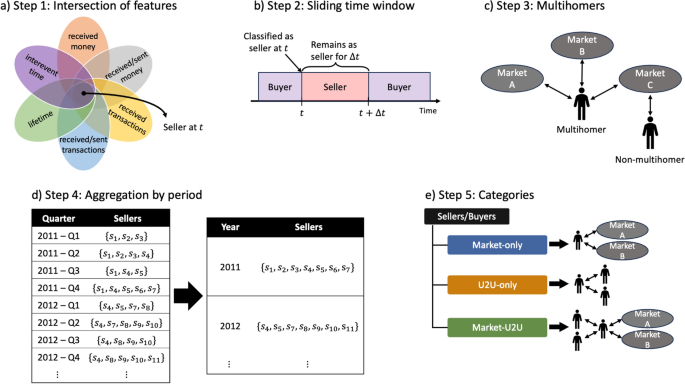Health and Wellness Coaches Combining Lifestyle Medicine and Coaching Techniques

The modern approach to health and wellness is evolving rapidly. Individuals increasingly seek guidance that goes beyond traditional medical care, emphasizing prevention, sustainable lifestyle changes, and personal empowerment. Health and Wellness Coaches are at the forefront of this transformation, integrating principles of lifestyle medicine with evidence-based coaching techniques to help clients achieve lasting improvements in their physical and mental well-being.
The Role of Lifestyle Medicine in Health Coaching
Lifestyle medicine focuses on evidence-based interventions to prevent, manage, and even reverse chronic health conditions. It emphasizes key areas such as nutrition, physical activity, stress management, sleep optimization, and avoidance of harmful behaviors like smoking or excessive alcohol use. By targeting the root causes of health challenges rather than simply treating symptoms, lifestyle medicine provides a strong foundation for sustainable wellness.
Health and wellness coaches trained in lifestyle medicine can guide clients to make informed choices about diet, exercise, and daily habits. They translate complex scientific information into practical strategies that individuals can implement in their everyday lives. This approach is not only about achieving short-term goals but also about instilling long-term behavioral changes that promote optimal health.
Integrating Coaching Techniques for Sustainable Change
While lifestyle medicine offers the scientific basis for interventions, coaching techniques provide the tools to implement them effectively. Health and wellness coaches use a range of strategies, including motivational interviewing, goal setting, accountability tracking, and reflective exercises. These techniques help clients uncover personal motivations, overcome barriers, and develop actionable plans tailored to their unique lifestyles.
One key component is goal-oriented coaching. Instead of imposing a standardized plan, coaches collaborate with clients to identify achievable objectives and create step-by-step pathways toward success. This method fosters ownership and engagement, increasing the likelihood of adherence and positive outcomes.
Personalization and Behavior Change
Every individual’s health journey is different. Factors such as work schedules, family responsibilities, stress levels, and personal preferences influence how a person can adopt and maintain healthier behaviors. Health and wellness coaches prioritize personalization, taking into account these unique circumstances while drawing from lifestyle medicine principles.
Behavioral change techniques, including habit stacking, self-monitoring, and positive reinforcement, are essential tools for coaches. By breaking down large goals into manageable steps and celebrating incremental progress, clients are empowered to sustain changes over time. This focus on gradual improvement aligns with research showing that small, consistent adjustments often lead to the most enduring results.
Mental and Emotional Wellness as Part of the Equation
Physical health is intertwined with mental and emotional well-being. Health and wellness coaches recognize this connection and incorporate strategies that promote stress management, emotional resilience, and mindfulness. Techniques such as guided reflection, breathing exercises, and mindfulness practices help clients develop self-awareness and emotional regulation skills, enhancing their overall quality of life.
Addressing mental wellness alongside physical health creates a holistic approach. Clients learn to navigate challenges, cope with setbacks, and maintain motivation, which is critical for sustaining healthy habits over time.
The Importance of Accountability and Support
Consistency is a major challenge when implementing lifestyle changes. Health and wellness coaches provide a structured system of accountability, offering regular check-ins, progress tracking, and feedback. This supportive relationship helps clients stay on course, adapt strategies when necessary, and remain motivated.
Accountability also includes building problem-solving skills. Coaches guide clients through obstacles by exploring alternative solutions, reframing setbacks as opportunities for growth, and reinforcing resilience. This approach fosters confidence and independence, equipping clients with tools to maintain long-term health.
Bridging Health Education, Research, and Care
The field of health and wellness coaching benefits from research-based insights, practical education, and integration with healthcare systems. UNT Health Fort Worth demonstrates this synergy by emphasizing its three core pillars: Health Education, Health Research, and Health Care. Coaches can draw upon research findings to inform interventions, educate clients on best practices, and collaborate with healthcare providers to ensure comprehensive support.
By bridging these areas, health and wellness coaches can provide care that is informed, personalized, and grounded in scientific evidence. Clients receive guidance that is not only practical but also aligned with current research and professional standards, ensuring safety and effectiveness.
Applications Across the Lifespan
Health and wellness coaching is valuable across all stages of life. Young adults can develop healthy routines that prevent chronic conditions later in life, while older adults can benefit from strategies to manage existing health issues and maintain independence. From weight management and cardiovascular health to sleep hygiene and stress reduction, coaching techniques provide adaptable tools for a wide range of goals.
Coaching also supports transitions, such as returning to work after illness, adjusting to lifestyle changes due to aging, or managing long-term health conditions. Through personalized guidance, clients learn to navigate these transitions with confidence and resilience.
Measuring Impact and Success
Health and wellness coaches emphasize measurable outcomes to track progress. This includes objective metrics such as blood pressure, weight, or physical activity levels, as well as subjective measures like energy levels, stress management, and overall satisfaction. By monitoring both quantitative and qualitative data, coaches can adjust strategies, celebrate achievements, and identify areas needing additional support.
The combination of lifestyle medicine principles and coaching techniques ensures that interventions are both scientifically sound and practically achievable. This dual approach increases the likelihood of sustained health improvements, enhancing both longevity and quality of life.
The Future of Health and Wellness Coaching
As interest in preventive health continues to grow, the demand for skilled health and wellness coaches is expected to rise. These professionals offer a unique blend of scientific knowledge, personalized guidance, and motivational support that traditional medical care often cannot provide alone.
Coaches are positioned to work alongside healthcare providers, offering complementary support that enhances patient outcomes. The integration of lifestyle medicine, coaching strategies, and client-centered care represents a shift toward proactive, holistic wellness.
Conclusion
Health and wellness coaches who combine lifestyle medicine with evidence-based coaching techniques are transforming the way individuals approach their well-being. By providing personalized guidance, fostering sustainable behavior changes, and supporting mental and physical health simultaneously, they empower clients to achieve meaningful, long-term results.
With a focus on education, research, and comprehensive care, this integrated approach not only addresses immediate health concerns but also equips individuals with the knowledge and skills to maintain wellness throughout their lives. Health and wellness coaching is more than a trend—it is a vital tool for promoting healthier, more resilient communities, and it represents a forward-thinking model of personal health management.




